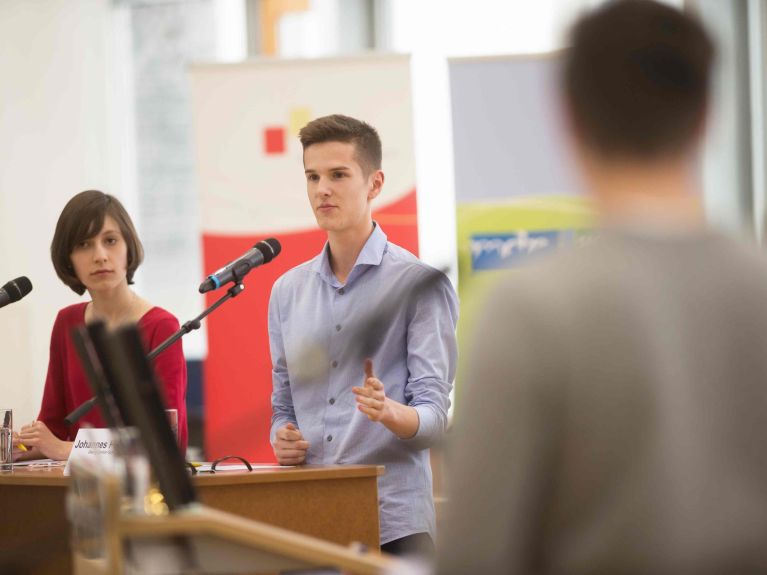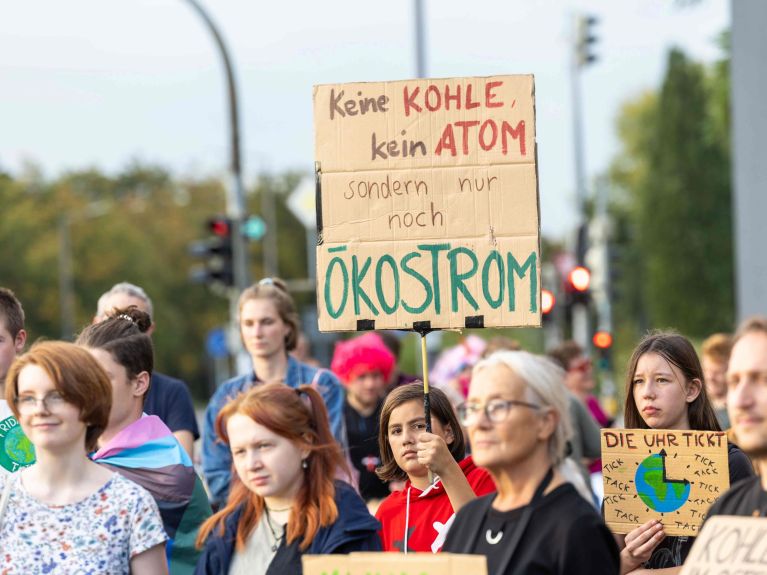Ensuring policy is youth-friendly
Young people are to be more closely involved in politics – the most important questions and answers on the Federal Government’s Youth Strategy.

There are nearly 16 million people under the age of 20 living in Germany. But young people are less well represented in politics than other age groups. They get involved in political parties more rarely than older adults, and only few young people are members of parliament.
What is the aim of the strategy?
The Federal Government’s Youth Strategy seeks to ensure that the interests of young people and young adults are taken into account in the political decision-making process. They will be much be much more affected by climate change in the course of their lifetime than today’s adults, for example. This is why it is so important to be aware of their preferences in terms of climate policy. What is more, young people usually have their own perceptions and needs when it comes to issues such as education, digitalisation, housing andwork.

How is the strategy put into practice?
All federal ministries are involved in the Youth Strategy. They invite adolescents and young adults to express their opinion on key issues. For this purpose they organise youth policy events and national youth conferences. The Federal Ministry for Economic Cooperation and Development has set up a Youth Advisory Council, for example. In addition, an analysis is carried out to assess the impact of each legislative proposal on young people. The Federal Government also supports children and youth parliaments at local level, since this is where many of their concerns can be directly addressed.
What else is being done to involve young people more effectively?
With the National Action Plan for Child and Youth Participation (NAP), the Federal Ministry for Youth has further developed the Federal Government’s youth strategy. The goal is to enable young people to have their say and help shape policy in a direct, visible and genuinely impactful way. The Federal Government is also planning a national children’s and youth summit. It will give young people the opportunity to express their wishes and ideas, talk to politicians and make suggestions for future child and youth policy.


